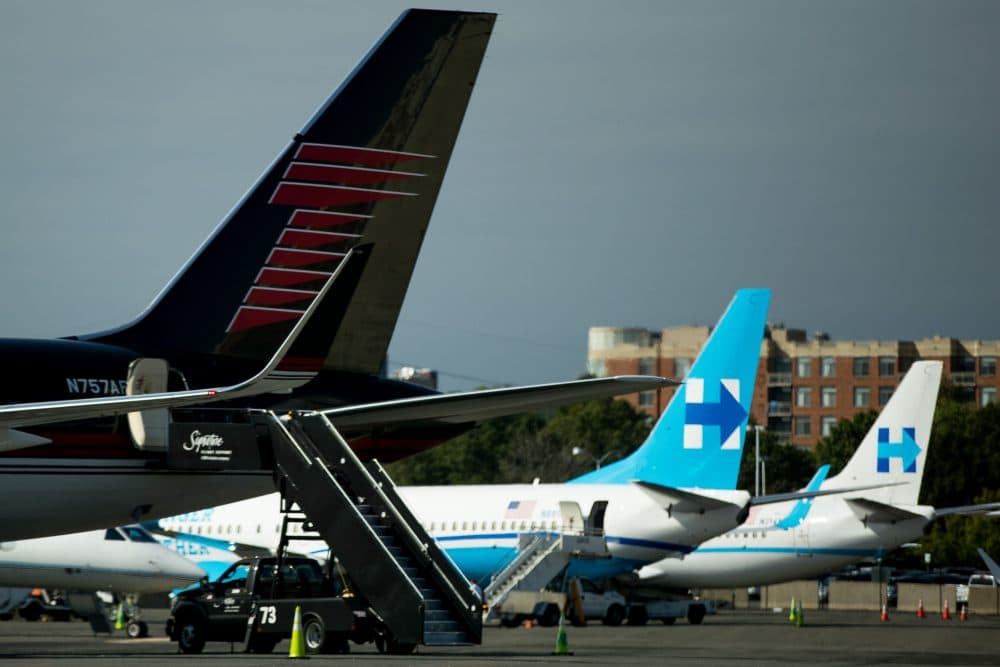Advertisement
Commentary: What To Look For This Week Ahead Of The 1st Clinton-Trump Debate

As we approach the Sept. 26 presidential debate, there are rituals observed by the nominees of both parties as well as the news media and other interested parties.
It’s quite likely one or both of the combatants will issue a charge about the other. Sometimes it happens the day before, sometimes the morning or afternoon of the day of the debate.
For his part, Donald Trump might charge that Hillary Clinton is weak on Muslim terrorism. Imagine this Trump tweet: “There's blood on the hands of Hillary & Obama in NY/NJ attacks. She must be stopped.”
For her part, Clinton might say, “Donald Trump cannot stop companies from leaving America, like Ford’s decision to send assembly jobs to Mexico. I challenge him to prove his words are not a cruel trick on auto workers.”
Lester Holt of NBC News, the debate moderator, will be closely watched. After NBC’s Matt Lauer turned in a dreadful performance hosting a back-to-back event earlier this month, Holt will be under heavy pressure from his NBC bosses and peers not to tiptoe around Trump, as Lauer did.
Each candidate will deal with expectations differently. Clinton will remind the media that Trump defeated more than a dozen Republicans in primary debates. While he ridiculed his opponents with juvenile playground names, he emerged as the winner of most of the debates, mainly because his victims didn’t respond and debate moderators spinelessly didn’t even try to stop him.
Trump will take the opposite tack, arguing that he beat the best that Republicans had to offer in the primaries and he’s not afraid of Clinton who, he’ll claim, lost every debate she had with Bernie Sanders.
Clinton, with her superior organization, will likely hold debate-watching parties, which she’ll allow cameras to capture, around the country, not just in blue states, but also in purple states like North Carolina and Nevada, which she hopes to win. Trump will probably announce a mega-rally in Trump Tower, a short flight on his private jet from the site of the debate on Long Island. He’ll arrive in New York City in time for live coverage on the always-gullible CNN.
Another ritual is members of the media submitting questions they’d like to see asked. Most will be gotchas and thus ignored by producers of the debate show. Examples: Think Progress, a liberal website, might wonder, “Mr. Trump, when will you stop hiding your wife's illegally entering the U.S.?” Or from Breitbart to Clinton: “When will you stop hiding the text of your speeches to Goldman Sachs.”
Advertisement
Twitter will be used to gain tactical advantage. Trump uses Twitter as a personal weapon. Judging from the misspellings and bad grammar, he drafts his own tweets. He’ll surely have something special for the debate, perhaps recounting the hacked email message from former Secretary of State Colin Powell, who allegedly wrote of Hillary: “A 70-year-old person with a long track record, unbridled ambition, greedy, not transformational, with a husband still d---ing bimbos at home. Very bad role model.” That’s a bank shot that hits both Clintons.
Of course, there will be polls and polls and polls. Any pollster worth his or her salt will conduct a survey before the debate, perhaps on Friday or over the weekend. It will measure the horse race and favorable-unfavorable scores for both candidates. Also likely are questions on whom the respondent expects to win the debate, on whatever terms he or she would use — humor, skill, knowledge, confidence, likability, etc. The pollster would ask the same questions after the debate for comparison sake.
Cable TV networks will decide whom to empanel to provide instant post-debate analysis. Rather than trying to find objective judges, cable shows seek to achieve balance by hosting partisans from both sides. This is like trying to feel comfortable by putting one foot in the oven and the other in the refrigerator.
Since Twitter is now considered an essential tool of analysis, both sides will be armed with squads of campaign staffers and opinion leaders ready to spit out 140-character tweets. They will be judged by reporters who are all over Twitter, both to see what others are saying or to issue a retweeted bon mot themselves.
